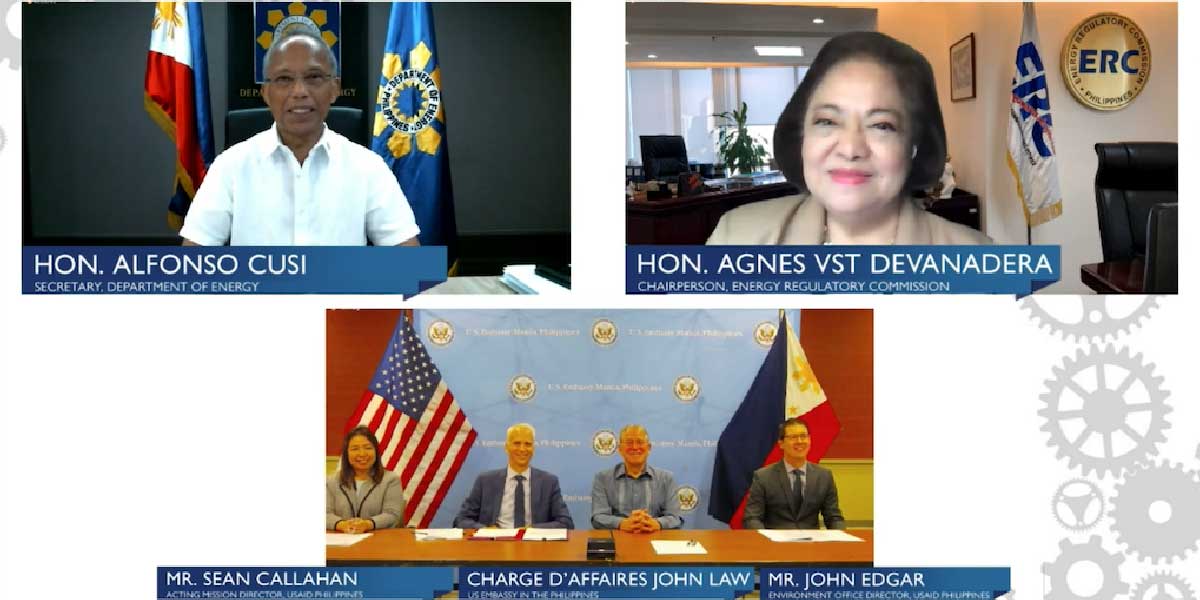
The U.S. government, through the U.S. Agency for International Development (USAID), launched on Monday, June 28, its flagship project to support a more competitive, secure, and resilient Philippine energy sector. The five-year, Php1.6-billion ($34 million) Energy Secure Philippines (ESP) project will promote the country’s key energy sector priorities and support its climate mitigation goals.
U.S. Embassy Chargé d’Affaires John Law joined USAID Philippines Acting Mission Director Sean Callahan and Philippine Department of Energy (DOE) Secretary Alfonso Cusi for a virtual Memorandum of Understanding signing. Also present to witness the event was Energy Regulatory Commission Chairperson Agnes VST Devanadera.
Through the Energy Secure Philippines Project, the U.S. will work with Philippine government and private sector partners to improve the performance and efficiency of energy utilities, deploy renewable energy systems, enhance competition in the power sector, and address energy sector cybersecurity. The U.S. government will also mobilize more than Php36 billion ($740 million) in private sector investment and help develop at least 500 megawatts of clean energy generation capacity.
“We look forward to building and sustaining new partnerships with diverse stakeholders across the energy sector whose collective efforts are required for a more competitive and advanced energy sector,” said Chargé d’Affaires Law.
Secretary Cusi expressed his optimism on the project’s positive impact on the Philippine energy sector. “The ESP will provide a wealth of opportunities for the DOE, as we reevaluate the appropriateness of our current policies vis-à-vis our country’s energy goals,” he stated.
During the event, CDA Law also announced the “Energy Evolution Challenge,” a grant facility that will fund proposals to advance research and deployment of innovative energy systems.
The United States and the Philippines are celebrating their 75th anniversary of diplomatic relations this year. During these past 75 years, the United States has worked closely with national and local governments, the private sector, academia, and communities to achieve the shared goal of a more prosperous and resilient Philippines.




















